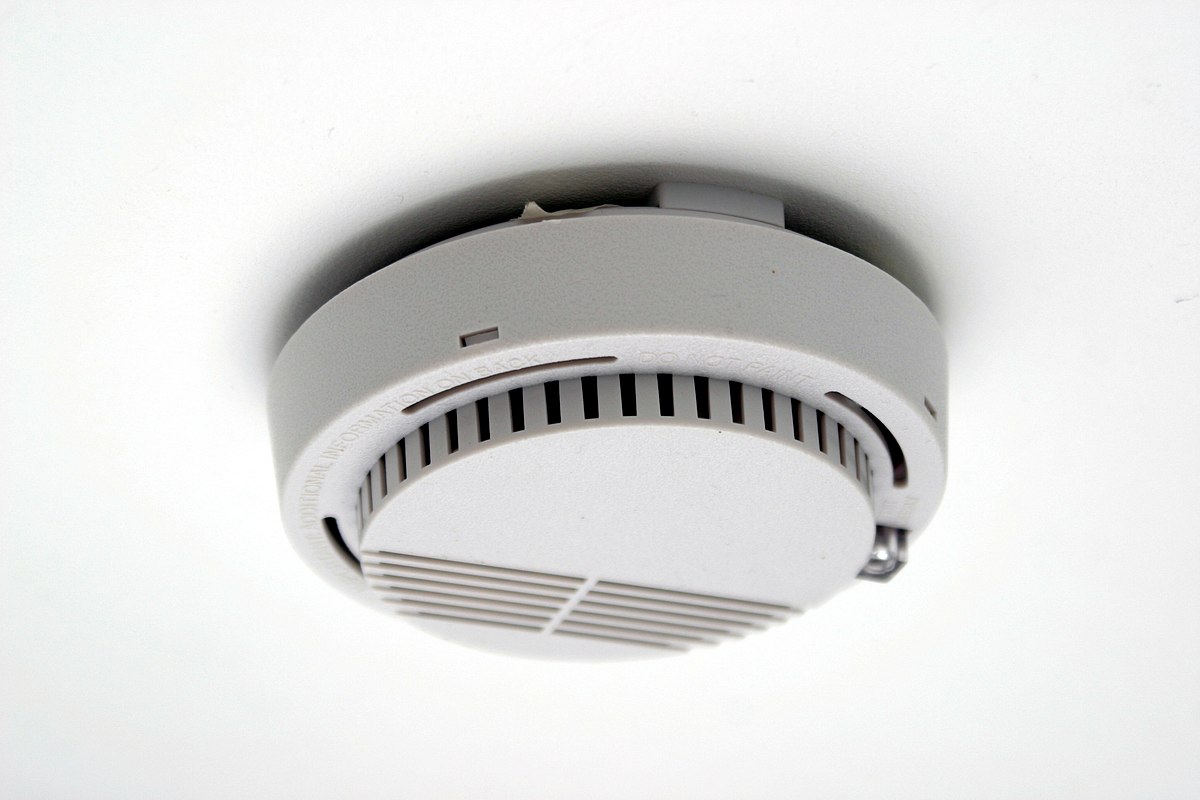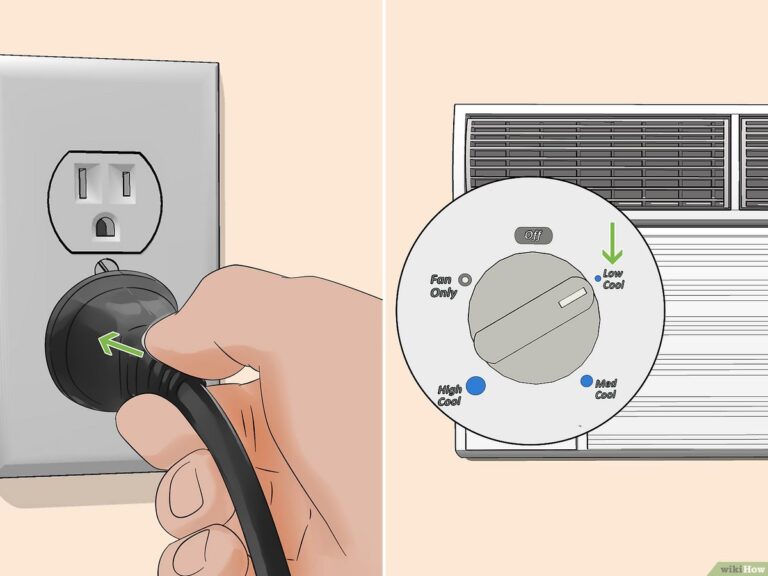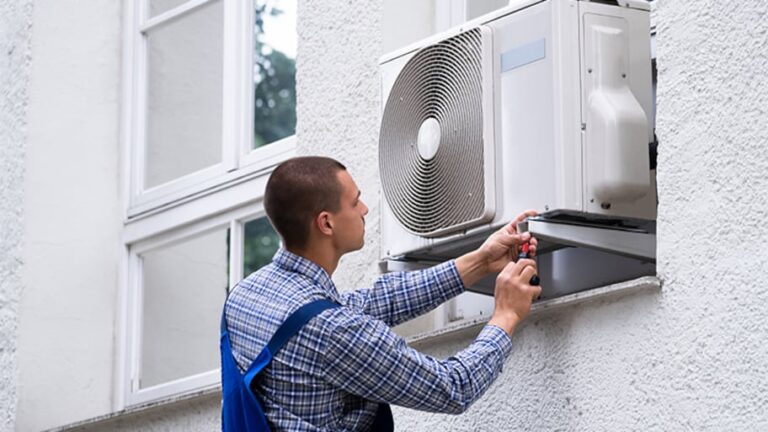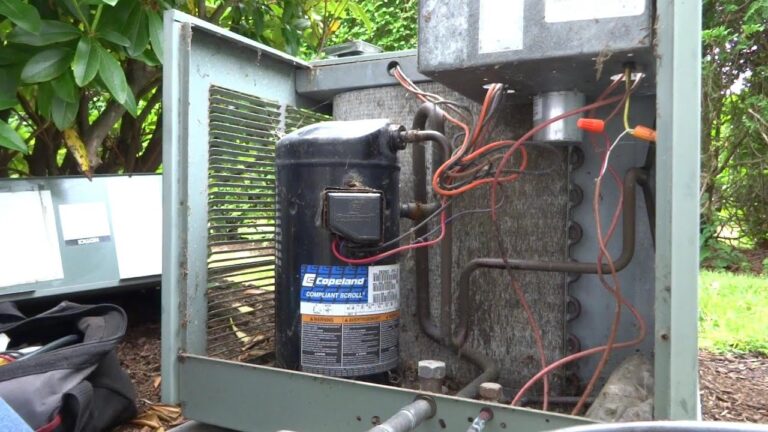Can Air Conditioner Cause Smoke Alarm to Go off : Myth or Reality?
An air conditioner can cause a smoke alarm to go off if there is a sudden change in temperature or humidity, resulting in a false alarm.
Understanding The Relationship Between Air Conditioners And Smoke Alarms
Air conditioners can cause smoke alarms to go off if they release smoke particles or if there is a drop in the home’s air temperature. It’s important to regularly change the batteries in smoke alarms to avoid false alarms.
When it comes to the safety of your home, smoke alarms play a crucial role in providing early detection of fires. But can your air conditioner cause your smoke alarm to go off unexpectedly? Let’s explore the relationship between air conditioners and smoke alarms to understand the possible reasons behind this phenomenon.
How Smoke Alarms Work:
- Smoke alarms are designed to detect the presence of smoke particles in the air.
- They consist of a sensor, which can be either ionization or photoelectric, and an alarm that goes off when smoke is detected.
- Ionization smoke alarms use a small amount of radioactive material to ionize the air in a chamber. When smoke particles enter the chamber, they disrupt the electrical current and trigger the alarm.
- Photoelectric smoke alarms use a beam of light to detect smoke particles. When smoke enters the chamber, it scatters the light, triggering the alarm.
The Role Of Smoke Alarms In Fire Safety:
- Smoke alarms are essential for early fire detection, giving you and your family valuable time to escape safely.
- They are the first line of defense against fire-related accidents, providing an audible signal to alert occupants of potential danger.
- Smoke alarms are required by building codes and regulations in most jurisdictions to ensure the safety of residential and commercial properties.
- Regular maintenance and testing are necessary to ensure the functionality of smoke alarms, including replacing batteries and cleaning the sensors.
Can Air Conditioner Cause Smoke Alarm To Go Off?
- Smoke alarms are designed to be sensitive to smoke particles in the air, but they can also be triggered by other factors, such as excessive dust or steam.
- If your air conditioner produces excessive dust or steam, it can potentially trigger your smoke alarm, leading to false alarms.
- However, it is uncommon for a properly functioning air conditioner to cause a smoke alarm to go off.
- If you notice frequent false alarms triggered by your air conditioner, it is recommended to consult a professional to identify and address the underlying cause.
- Regular maintenance and cleaning of both your air conditioner and smoke alarms can help prevent false alarms.
While it is possible for an air conditioner to cause a smoke alarm to go off due to excessive dust or steam, it is not a common occurrence. Regular maintenance and cleaning of both your air conditioning system and smoke alarms can help ensure their proper functioning and reduce the risk of false alarms.
It is essential to prioritize the safety of your home by having functioning smoke alarms and addressing any concerns promptly.

Credit: www.acesolvesitall.com
Factors That Can Trigger Smoke Alarms
Air conditioners can trigger smoke alarms due to factors such as low battery power, environmental factors like high humidity or smoke particles, or the activation of the fire alarm system in ducted AC systems. Dust and dirt from activities like remodeling can also set off smoke alarms.
Proper maintenance and cleaning can help prevent false alarms.
:
There are several factors that can trigger smoke alarms, causing them to go off even when there is no smoke present. One potential factor is interference from air conditioners. Air conditioners can produce particles or substances that can activate smoke alarms, leading to false alarms.
Here are some common causes of false alarms and potential interference from air conditioners:
Common Causes Of False Alarms:
- Steam: Steam from hot showers or cooking can trigger smoke alarms, as some detectors may mistake steam particles for smoke.
- Dust: Accumulated dust or debris on smoke alarms can cause them to go off when disturbed, even if there is no actual smoke.
- Cooking: Smoke or excessive heat produced during cooking can activate smoke alarms.
- Insects: Insects or bugs crawling on smoke alarms can interfere with their sensors, causing false alarms.
- Malfunctioning Devices: Older or faulty smoke alarms may give false alarms due to technical issues.
Potential Interference From Air Conditioners:
- Chemicals: Some air conditioners may release chemical particles, such as volatile organic compounds (VOCs), that can trigger smoke alarms.
- Odor: Certain air conditioners may emit strong odors that can be mistaken for smoke by sensitive smoke detectors.
- Heat: The heat generated by air conditioners, especially in older systems, can cause temperature-sensitive smoke alarms to activate.
- Dust and Debris: Air conditioners can circulate dust and debris in the air, which may trigger smoke alarms if they come into contact with the detectors.
It is important to note that newer smoke alarms are designed to be less prone to false alarms and can differentiate between smoke particles and other substances. Regular maintenance, such as cleaning the smoke alarms and replacing batteries as needed, can help reduce the occurrence of false alarms.
Additionally, ensuring proper ventilation and maintenance of air conditioning systems can minimize potential interference with smoke alarms.
While air conditioners can potentially interfere with smoke alarms and cause false alarms, there are various factors that can trigger smoke alarms even without the presence of smoke. Understanding these factors can help homeowners maintain a safe and functional smoke alarm system.
Debunking The Myth: Can Air Conditioners Cause Smoke Alarms To Go Off?
Debunking the Myth: Can Air Conditioners Cause Smoke Alarms to Go off? Contrary to popular belief, air conditioners cannot trigger smoke alarms solely based on their cooling function. The main reasons for smoke alarm activation are low battery power, temperature fluctuations, or environmental factors like dust and dirt.
A commonly held belief is that air conditioners have the potential to set off smoke alarms. We will examine the physics of smoke detection to understand how alarms work, and evaluate the impact of air conditioner emissions on smoke detection systems.
Let’s dive in and debunk this myth once and for all!
Examining The Physics Of Smoke Detection:
To understand how smoke alarms function, let’s take a closer look at the physics behind smoke detection. Here’s what you need to know:
- Smoke alarms are equipped with sensors that detect tiny particles in the air, such as smoke, heat, or dust.
- These sensors are designed to trigger an alarm when they detect a certain concentration of particles in the air.
- Smoke detectors use two main technologies: Photoelectric and ionization. Photoelectric detectors use a beam of light to detect smoke particles, while ionization detectors use electrically charged particles.
- Both types of detectors are highly sensitive and can quickly detect the presence of smoke.
Evaluating The Impact Of Air Conditioner Emissions:
Now, let’s address the question at hand: can air conditioners cause smoke alarms to go off? Here are some key points to consider:
- While air conditioners emit cool air, they do not produce smoke or other particles that would trigger a smoke alarm.
- The main purpose of an air conditioner is to regulate temperature and improve indoor air quality, not to create smoke or heat.
- Smoke alarms are specifically designed to detect smoke particles, and their sensors are not influenced by the emissions from air conditioners.
- In rare instances, if an air conditioner is malfunctioning or poorly maintained, it may produce odors or smoke-like particles. However, this is not a common occurrence and can be easily addressed by servicing the unit.
The notion that air conditioners can cause smoke alarms to go off is a myth. The physics of smoke detection and the design of modern smoke alarms ensure that they are not affected by the emissions of air conditioning systems.
So, you can enjoy the cool comfort of your air conditioner without worrying about setting off any smoke alarms. Keep your air conditioner well-maintained and enjoy a smoke-free environment!
Remember to regularly check and replace the batteries in your smoke alarms to ensure their proper functioning. Safety should always be a priority!
Maintaining The Efficiency Of Smoke Alarms
Air conditioners can cause smoke alarms to go off due to the cold air they produce, which can create condensation that triggers the alarm. It is important to maintain the efficiency of smoke alarms by regularly cleaning and replacing batteries to prevent false alarms.
Proper Placement of Smoke Alarms:
- Install smoke alarms in every bedroom, outside each sleeping area, and on every level of your home to ensure maximum coverage throughout your living space.
- Place smoke alarms at least 10 feet away from cooking appliances to prevent false alarms caused by cooking-related smoke and steam.
- Mount smoke alarms high on walls or ceilings, as smoke tends to rise and gather near the ceiling. This placement allows the alarm to detect smoke quickly.
Regular Maintenance and Testing:
- Test your smoke alarms at least once a month by pressing the test button. Make sure the alarm sounds loudly and clearly.
- Replace batteries in your smoke alarms annually, or as instructed by the manufacturer. Consider using long-lasting lithium batteries for extended life.
- Vacuum the outside of your smoke alarms regularly to remove dust and debris that may interfere with their efficiency.
- Replace smoke alarms every 10 years, as older models may not function as effectively.
Remember, properly maintaining your smoke alarms is crucial for the safety of your home and family. By following these tips and guidelines, you can ensure that your smoke alarms are always in optimal working condition, providing you with early warning in the event of a fire.
Stay safe!
Frequently Asked Questions On Can Air Conditioner Cause Smoke Alarm To Go Off
Why Would Smoke Alarm Go Off Without Smoke?
Smoke alarms can go off without smoke due to low battery power, environmental factors like humidity or steam, or dust and dirt buildup in the alarm.
Why Does Air Conditioning Turn Off When There Is A Fire Alarm?
Air conditioning turns off when there is a fire alarm to comply with safety regulations.
Why Did My Smoke Alarm Go Off In The Middle Of The Night?
A smoke alarm may go off in the middle of the night due to low battery power, a drop in air temperature, high humidity, or the presence of smoke particles in the air.
What Sets Off Smoke Alarm Besides Smoke?
Other than smoke, dust, dirt, and environmental smoke can set off a smoke alarm.
Conclusion
Based on the research, it is not likely for an air conditioner to directly cause a smoke alarm to go off. Smoke alarms are typically designed to detect smoke particles in the air and are not affected by the cold air produced by an air conditioner.
However, there are other factors that can trigger a smoke alarm, such as low battery power, environmental factors like dust or dirt, or a sudden change in temperature or humidity. It is important to regularly check and replace the batteries in your smoke alarm to prevent false alarms.
Additionally, keeping your smoke alarm clean from dust and dirt can also help avoid unnecessary alarms. If you continue to experience frequent false alarms, it may be helpful to consult a professional to ensure your smoke alarm is working properly.







